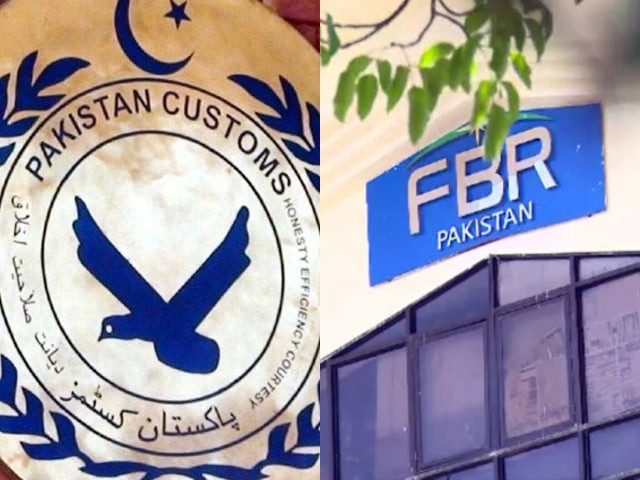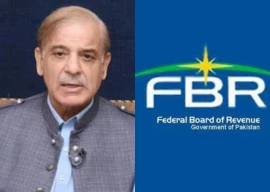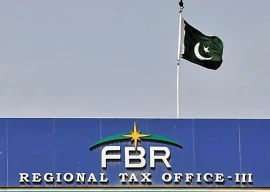
The Pakistan Customs Group on Wednesday moved a resolution, seeking evidence of profiling the tax officers between corrupt and honest, and agreed to take a legal course against Prime Minister Shehbaz’s move to purge the Federal Board of Revenue (FBR) of compromised officers.
The Association of Custom officers moved the resolution for the voting of its members before taking the matter to the highest level, according to sources.
Once approved within 24 hours by the majority of votes, the group plans to exert pressure on the government for the action that garnered appreciation for the premier but exposed two of the top civil service groups to the public scrutiny.
The prime minister last week removed 25 officers of the FBR serving in grade 21 and 22 from their positions due to adverse reports against them by three premier intelligence agencies. Out of these 25 officers, 11 belonged to the Customs Service and 14 were from the Inland Revenue Service.
Prime Minister Shehbaz had ordered the three intelligence agencies and the FBR top management to assess the top tier of the tax machinery on the basis of their financial integrity, competence and public dealing.
On the basis of the input from the intelligence agencies, the government divided the FBR officers serving in grade 20 to 22 in four categories.
The clean and competent officers are being given the top positions of the members, chief commissioners and chief collectors.
Only category ‘A’ officers of good reputation and exceptional skills are to be given the FBR’s top managerial positions including the members of the board, chief commissioners, commissioners, chief collectors and collectors.
Category ‘B’ officers got relatively less important positions whereas category ‘C’ officers are sidelined.
Category ‘D’ officers of grade 21 and 22 were removed on Friday and placed in the administration pool of the FBR, rendering them without any positions.
Sources said the Customs officers were of the view that they were entitled to protections of due process enshrined in the Constitution and in the Civil Servants Act 1973.
During a meeting, they argued that the profiling of officers by the government in different categories has been made without due process, in an arbitrary, and non-transparent manner.
They have demanded from the government to share the evidence of the corruption and the inefficiency of these officers.
The Customs officials claimed that the entire profiling process was not carried out on merit.
The issue extended beyond mere accusations of corruption. Even individuals classified as less efficient encountered difficulties.
The Customs entire top tier is nearly wiped out except for those who provided indirect input for profiling.
The Customs officials further claimed that Mukaram Jah Ansari and Ahmad Mujteba Memon – the two grade 2 officers – had been victimised for their role in the FBR restructuring.
Similarly, former FBR chairman Mohammad Ashfaq, who is known for his integrity, but was placed in D Category due to his role in Chief Justice Qazi Faez Issa offshore asset case.
Sources said the resolution also highlighted the issue of “media trial” of both the services of FBR and their officers on the basis of unsubstantiated allegations, tarnishing their reputations, which damaged the morale and performance of officers.
The FBR sustained Rs40 billion tax shortfall in April and one of the reasons was the go-slow strategy adopted by some grade 20 officers serving at key positions and waiting for their fate.
After grade 21 and 22, the government now plans to move against grade 20 officers.
The government’s move to remove these officers was not without merit, considering that as some of them were facing inquiries for years but remained untouched.
Through the resolution, the officers have sought detailed information from the FBR regarding the profiling activity,
including the process followed, parameters, basis and evidence used for profiling, as well as any related matters.
The officers have also urged the FBR chairman to fulfill his responsibilities in protecting the legitimate rights of FBR officers and ensuring the observance of due process of law in addressing issues related to inefficiency, misconduct, and integrity.
It has been proposed to take all necessary steps to undo the infringement of legal rights of officers, by interacting with all stakeholders outside FBR, including press and electronic media.
It was also recommended to utilise all legal channels, including recourse to judicial system to protect the legitimate rights of officers and the Customs Service.

1730959638-0/trump-(19)1730959638-0-405x300.webp)









1730379446-0/WhatsApp-Image-2024-10-31-at-17-56-13-(1)1730379446-0-270x192.webp)









COMMENTS (1)
Comments are moderated and generally will be posted if they are on-topic and not abusive.
For more information, please see our Comments FAQ